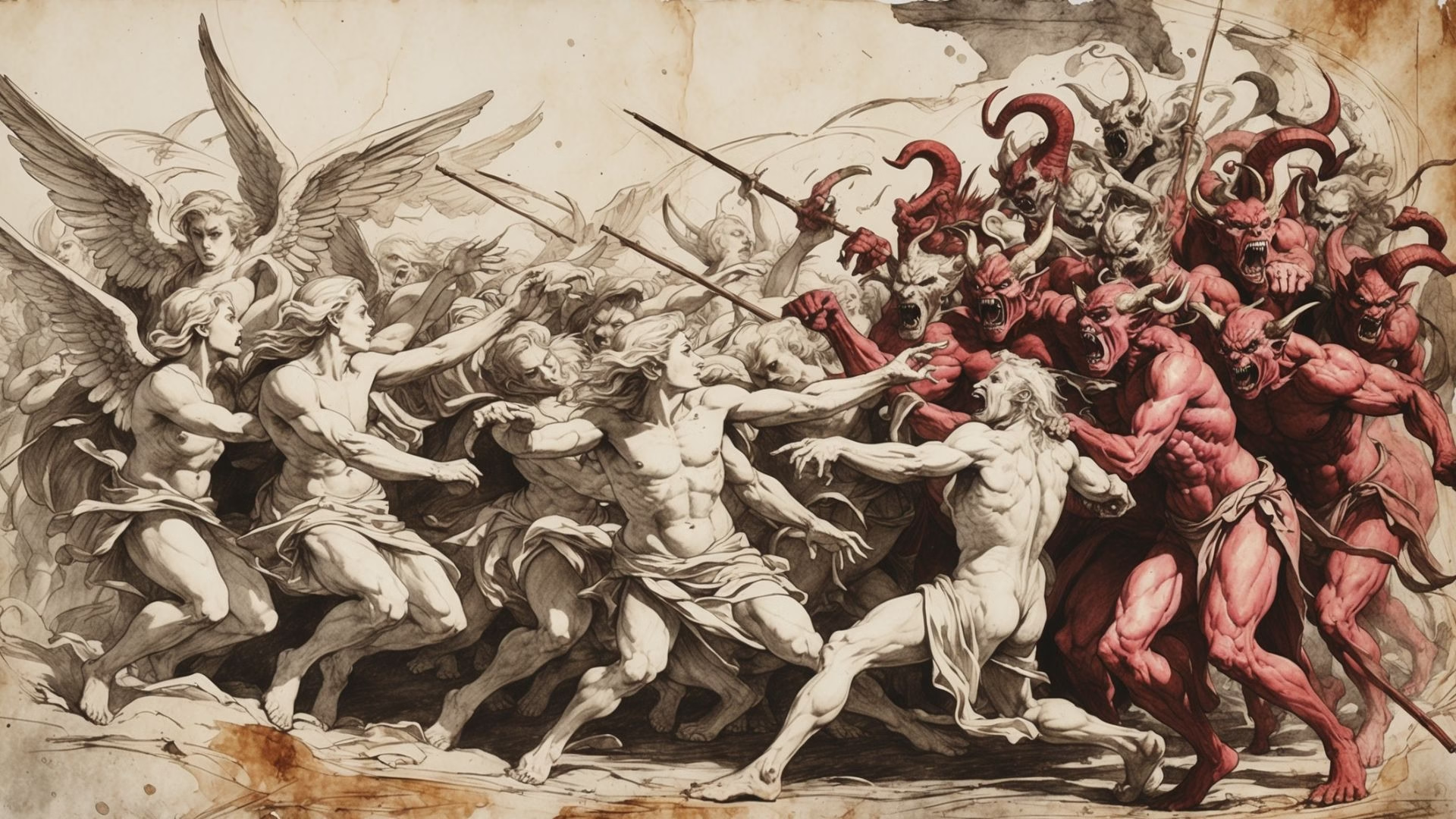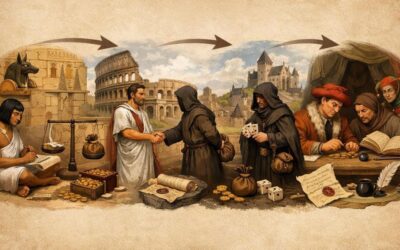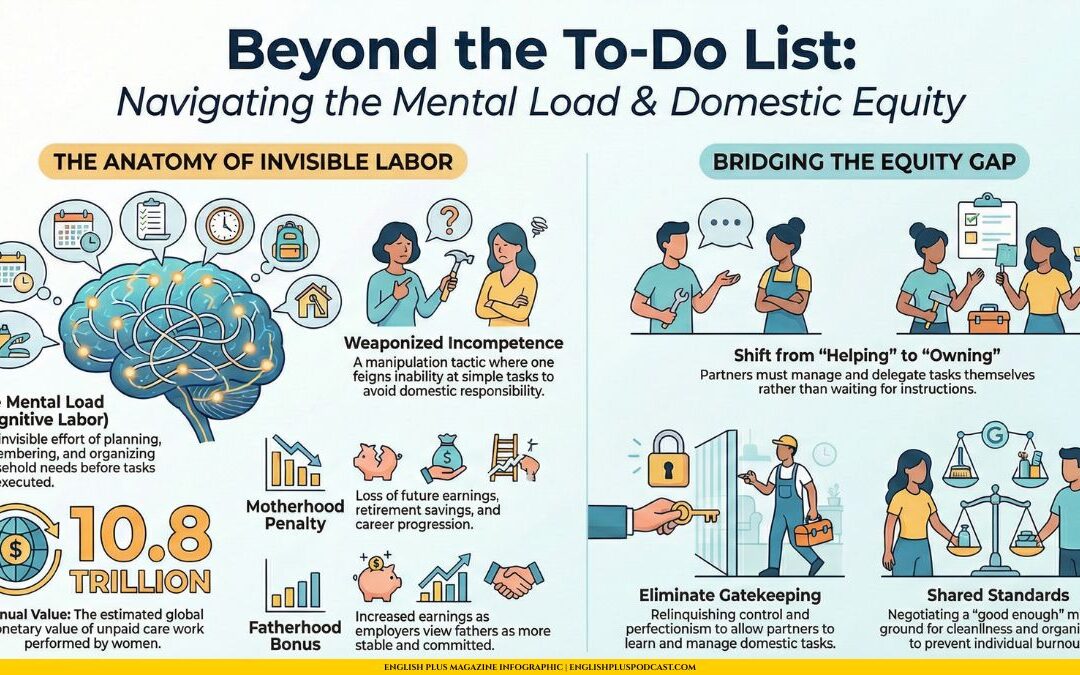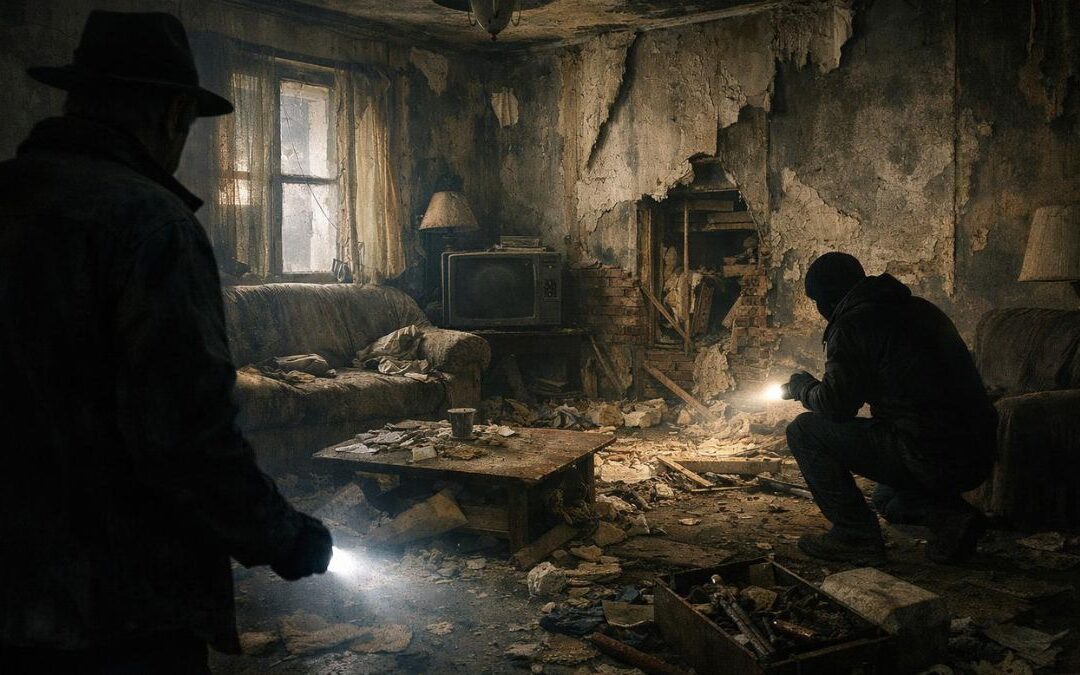Ah, that familiar scent is in the air again. It’s the smell of freshly printed maps, polished podiums, and a marketing budget that could solve world hunger. Someone get the branding team on the line. The overture is playing, the stage is set, and it’s time for that grand, time-honored tradition that precedes the booms, the flashes, and the weeping: the Great Cosmic Rebranding.
You know the drill. It starts with a memo, probably marked “URGENT,” circulated among the hallowed halls of power. The memo, in essence, declares a grand casting call. Positions are open for “Absolute Good” and “Unspeakable Evil.” Don’t worry about the nuance in your application; it’s a liability. We’re looking for broad strokes, primary colors, the kind of stark, simple clarity you’d find in a children’s picture book.
Our side? Angels, naturally. Not just regular, run-of-the-mill good guys, but divinely sanctioned, morally unimpeachable beings of pure light, reluctantly taking up arms only because the universe—and history itself—has demanded it. Our motivations are as pure as driven snow on a mountain no one has ever been allowed to visit. We stand for noble concepts like ‘Freedom’ and ‘Justice’—always capitalized, of course—along with kittens, the laughter of children, and the inalienable right to perfectly buttery movie theater popcorn. We are the defenders of all that is decent and good. It says so right here on the brochure. The font is very reassuring.
The other side? Demons. A simpler, more elegant branding solution has never been conceived. They are a monolithic horde, spawned from the darkest, muckiest corners of existence. They hate freedom, despise justice, loathe kittens, and probably want to replace all popcorn with flavorless rice cakes. Their motives are a tangled, incomprehensible knot of pure, unadulterated malice. Why do they do what they do? Don’t ask. It’s unknowable. They are a force of nature, a plague, a blight upon the otherwise pristine garden of humanity. They are evil, capital ‘E’, trademarked and registered.
And just like that, the world is wonderfully, terrifyingly simple. Isn’t it a relief? Gone is the messy, agonizing burden of critical thought. Gone is the discomfort of ambiguity. Gone is the exhausting work of seeing the world in its infinite, complicated shades of gray. In its place, we have a clean, binary code: 1s and 0s, good and evil, us and them.
The media, of course, plays its part with commendable enthusiasm. Tune in to any channel, and you’ll find a panel of very serious people with very serious ties to very serious institutions explaining, with the patience one reserves for a particularly dense toddler, why our angels are so angelic and their demons so demonic. They have charts. They have graphs. They have grainy satellite photos that could be anything, but are presented as definitive proof of demonic infrastructure. They speak in a language of unwavering certainty, a dialect devoid of words like “perhaps,” “maybe,” or “it’s complicated.”
This isn’t a war, they’ll tell you. It’s a “special military operation.” It’s a “righteous crusade.” It’s “preemptive self-defense.” It’s “bringing stability.” The language is sanitized, shrink-wrapped, and made safe for public consumption, lest the raw, bloody reality of it all sour your appetite. The goal is to create a moral buffer, a sterile field between the decision and the consequence, so that we can cheer from the sidelines, waving our flags with clean hands and clearer consciences.
The strategy is brilliant, and it works like a charm. For a while. We rally behind our angels, our hearts swelling with righteous fury. We boo and hiss at the demons, our resolve hardened by their cartoonish villainy. We are united, purposeful, and absolutely, positively sure of our own goodness.
But then, a strange thing happens. A crack appears in the flawless facade. Through the static, through the carefully curated feeds and the state-sanctioned reports, a whisper from the other side emerges. And it sounds… familiar. Frighteningly so.
They, too, are speaking of angels and demons.
In their story, they are the reluctant heroes, the guardians of an ancient and sacred way of life. They are the ones protecting their children, their homes, their history, their honor. They are fighting a defensive war against an encroaching darkness, an existential threat bent on their annihilation. They are the angels.
And we? Well, you can probably guess. In their narrative, we are the monsters. We are the aggressors, the imperialists, the soulless, culture-destroying machine. We are the ones whose motivations are opaque, driven by greed and a lust for power. We are the demons.
It is in this moment of bizarre, horrifying symmetry that the entire construct shatters. The clean, simple binary collapses into a dizzying, nauseating paradox. When both sides are armed with the same unshakeable conviction that they are the forces of light fighting the forces of darkness, who is right?
The answer, which is the most profound casualty of any war, is that it ceases to matter what the “truth” is. Truth is a whisper in a hurricane. It is replaced by something far more potent and far more dangerous: belief. You simply choose which set of angels to believe in. You choose your demons. And once that choice is made, every action becomes justified, every atrocity explainable. Facts become inconvenient obstacles, to be bulldozed by the sheer force of faith in your cause. Empathy for the other side becomes a form of treason.
This is not to say that all claims are equal or that there is no such thing as right and wrong. Aggressors are real. Injustices are real. But the “angels and demons” narrative is a poison that blinds us to the humanity of those we are taught to hate. It is the essential anesthetic required to conduct the bloody surgery of war. It allows a young man to look at another young man, who is just as scared and just as convinced of his own righteousness, and see not a person, but a target. A demon to be vanquished.
But the word games, the marketing, the cynical analysis—it all has a shelf life. It evaporates in the heat of a burning home, in the face of the grim, unchangeable reality. Because beneath the flags, beneath the rhetoric, beneath the grand narratives of angels and demons, are people.
Flesh and blood.
They are not pawns on a chessboard. They are not statistics on a news report. They are not abstract concepts of “collateral damage.” They are breathing, feeling human beings whose lives are as complex, as precious, and as irreplaceable as your own.
There are no winners in war. There are only varying degrees of loss. A nation might “win” a piece of land, but it loses its sons and daughters. It might “win” a strategic advantage, but it loses a part of its soul. The victory parades march over unseen graves, and the triumphant speeches are drowned out by the silent screams of generations who will bear the scars. The true legacy of war isn’t etched in the stone of monuments, but in the empty chair at the dinner table that becomes a permanent member of the family; in the phantom ache of a lost limb; in the thousand-yard stare of a child who saw their world undone.
There is an ancient, profound wisdom, echoed in seemingly disparate traditions, that speaks to this very truth. The Talmud, a central text of Judaism, teaches that whoever saves a single life, it is as if they have saved an entire world. The Quran, the holy book of Islam, carries a verse with a similar, powerful message: whoever kills an innocent soul, it is as if they have slain all of mankind.
This is not a religious sentiment; it is a human one. It is the recognition that every single life is a universe unto itself—a cosmos of memories, loves, fears, and dreams. To extinguish one is to collapse a world.
So let them have their stories. Let the politicians posture and the generals strategize. Let them draw their lines on maps and sell their narratives of angels and demons. We must be wiser than that. We must understand that wars are almost always fought for the benefit of a powerful few—for land, for resources, for ideology, for ego—but they are always paid for by the many.
We must refuse to be fooled. We must refuse to see demons where there are only people. Because the life of one innocent person—a child, a parent, a baker, a teacher, on either side of any line—is worth more than all the flags, causes, and nations combined. Each life is its own world. To forget that is not just to lose a war; it is to lose our humanity.
Danny Ballan
Editor-in-Chief
English Plus Podcast










0 Comments